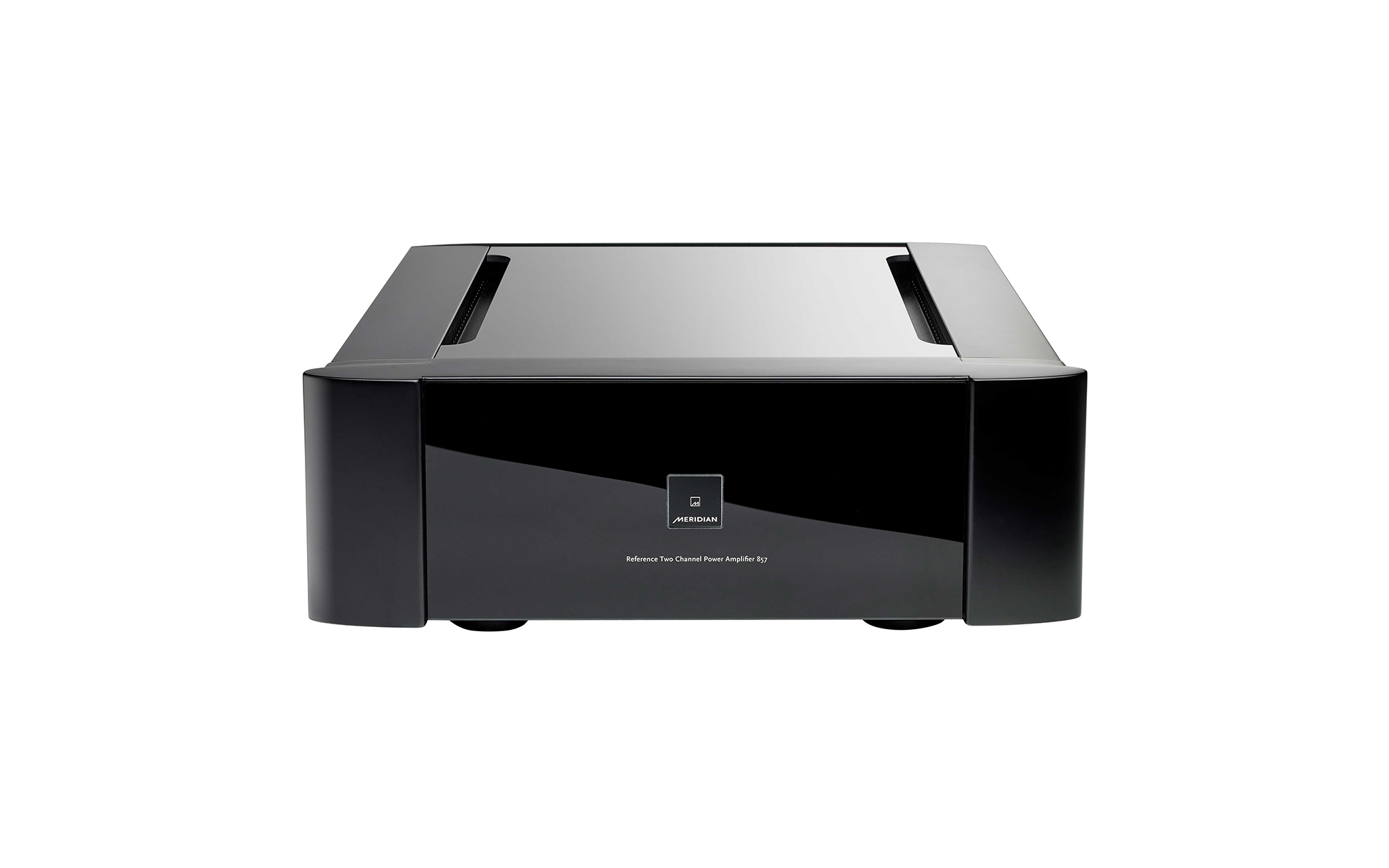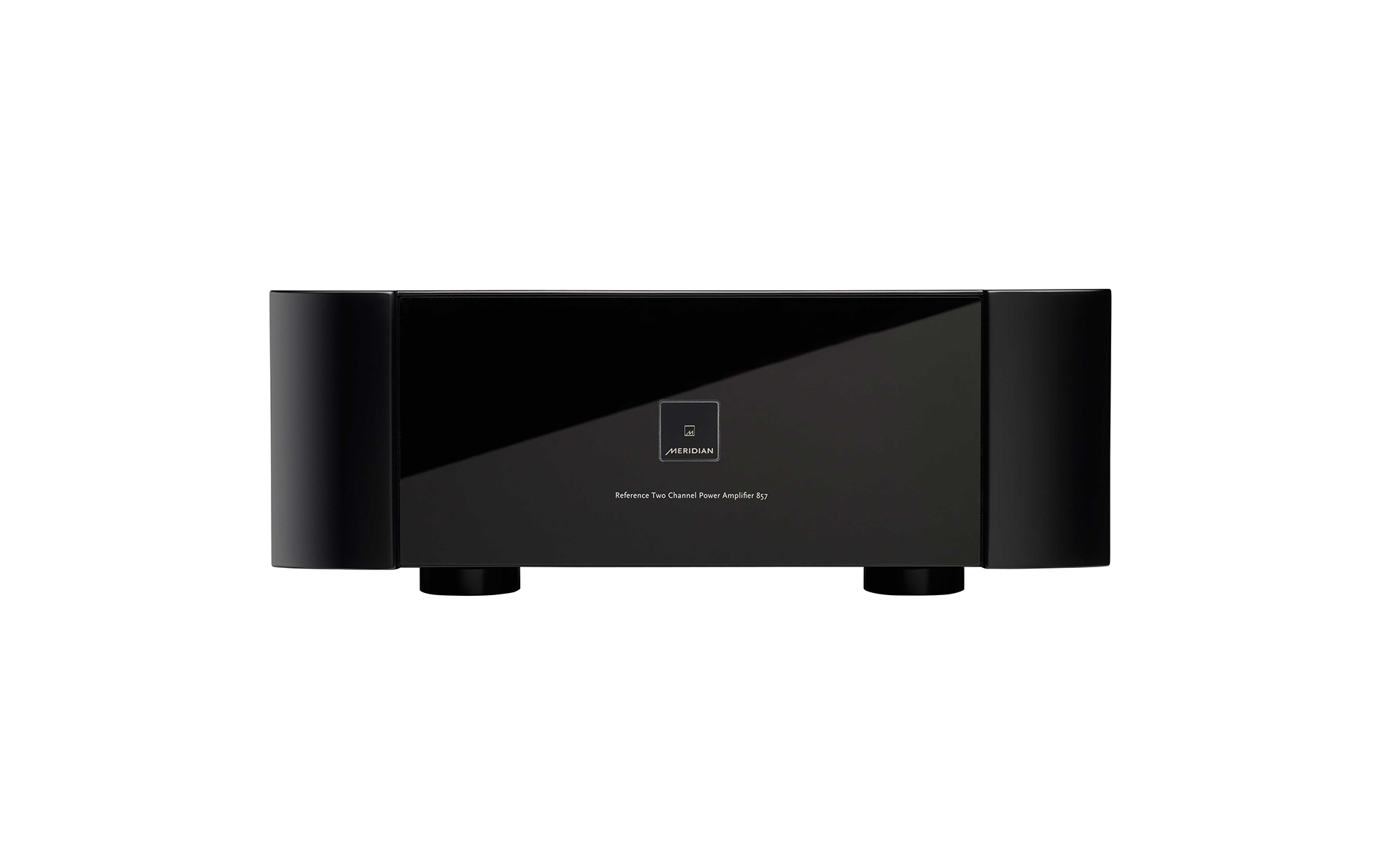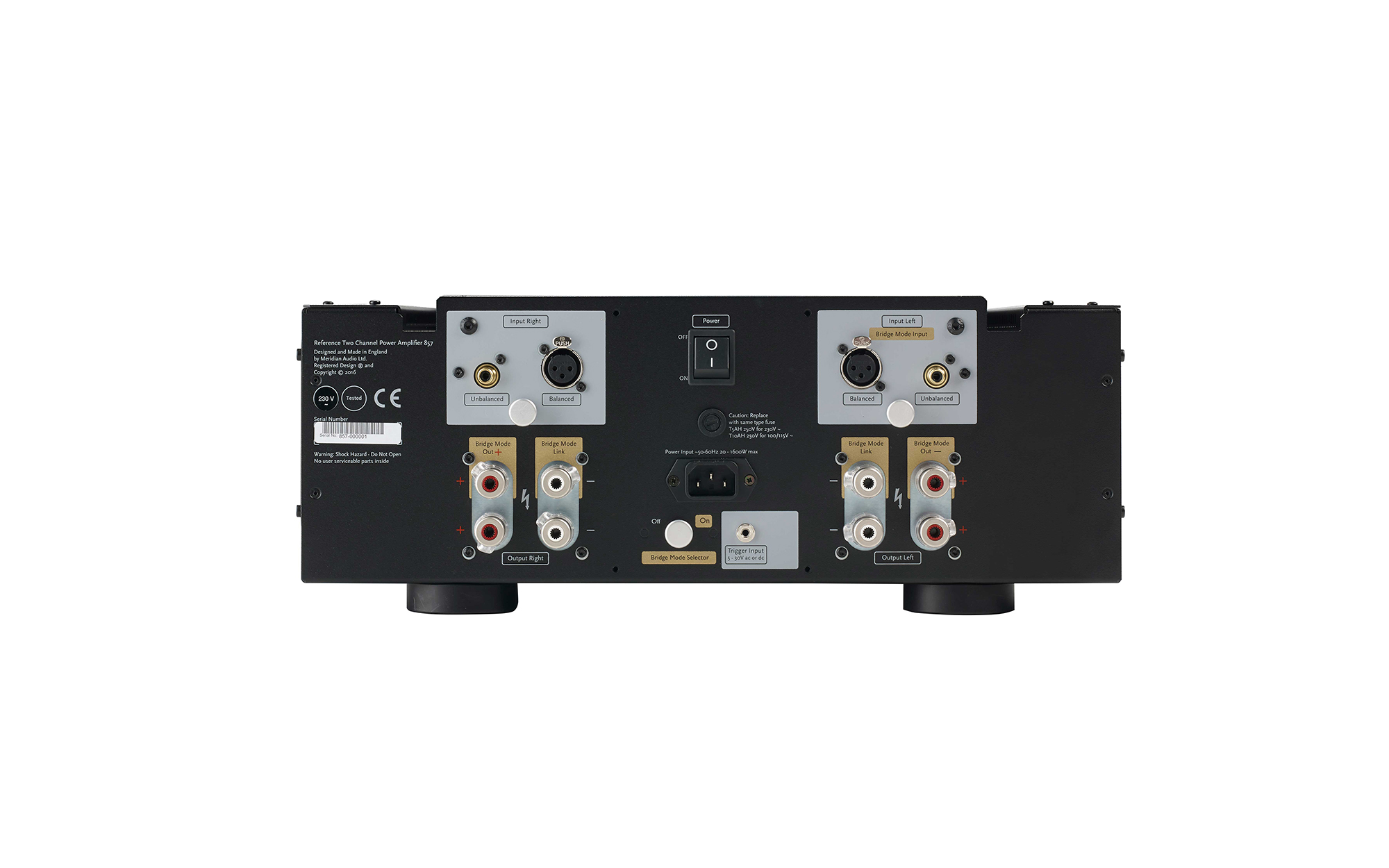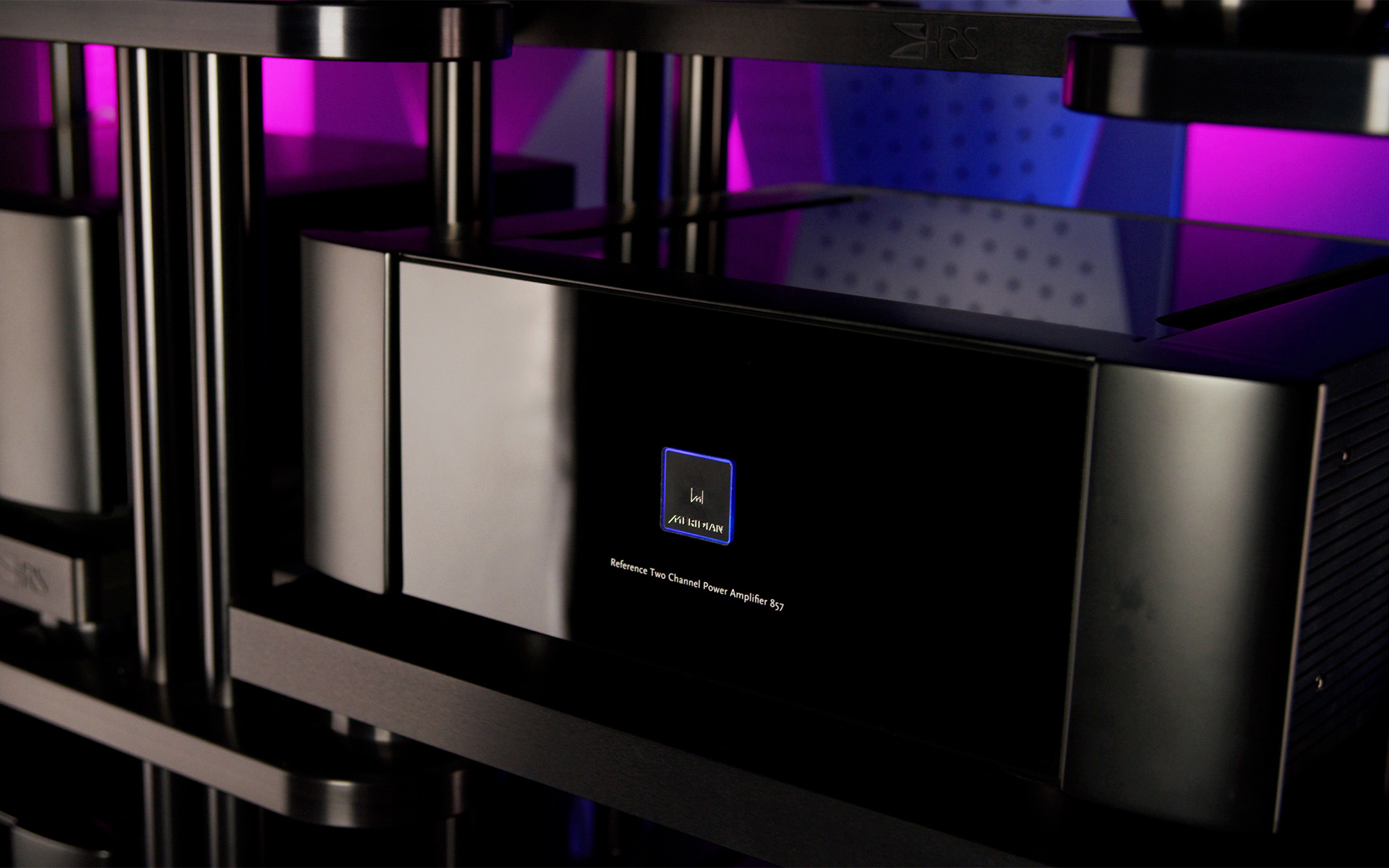
Two-Channel
Meridian customers - create an account so you can register your product(s) for your extended warranty.
Dealers, integrators, and installers - create an account to request access to Dealer Resources and/or apply to become a Meridian dealer.

Two-Channel
Our most powerful reference two channel amplifier has been designed and built to deliver the best possible Hi-Res audio performance from any high-quality passive loudspeaker system.
Its low-feedback construction provides ultra-low distortion, ensuring an unparalleled level of clarity and transparency across the audible range.
Bridgeable to over 1.5Kw, the Meridian 857 features a totally new design for a Meridian power amplifier, borne out of extensive research, experience and a thorough understanding of psychoacoustic principles.
Find a distributorTwo-Channel
Reference 857
The Meridian 857 is a Reference Two-Channel Power Amplifier delivering 500W per channel into 4Ω. This Hi-Res Audio amplifier, bridgeable to >1.5KW, is available as a dedicated rack-mount variant and incorporates a totally new design based upon extensive research. Tremendously powerful with an incredibly low noise floor, the Meridian 857 represents a step change in amplifier design.
In normal mode, delivers 2 x 250 watts into 8 ohms and 500 watts into 4 ohms; continuously on both channels. In bridged mode, delivers 1 x >1 kilowatt into 8 ohms and 1 x >1.5 kilowatts into 4 ohms.
Low-feedback construction provides ultra-low distortion, ensuring an unparalleled level of clarity and transparency across its full frequency response of 1-100kHz (-/+ 2dB).
The signal path is balanced throughout - fed from either the XLR balanced inputs or from the "SuperBal" circuitry which converts unbalanced (single-ended) signals to balanced audio as soon as they enter the amplifier.
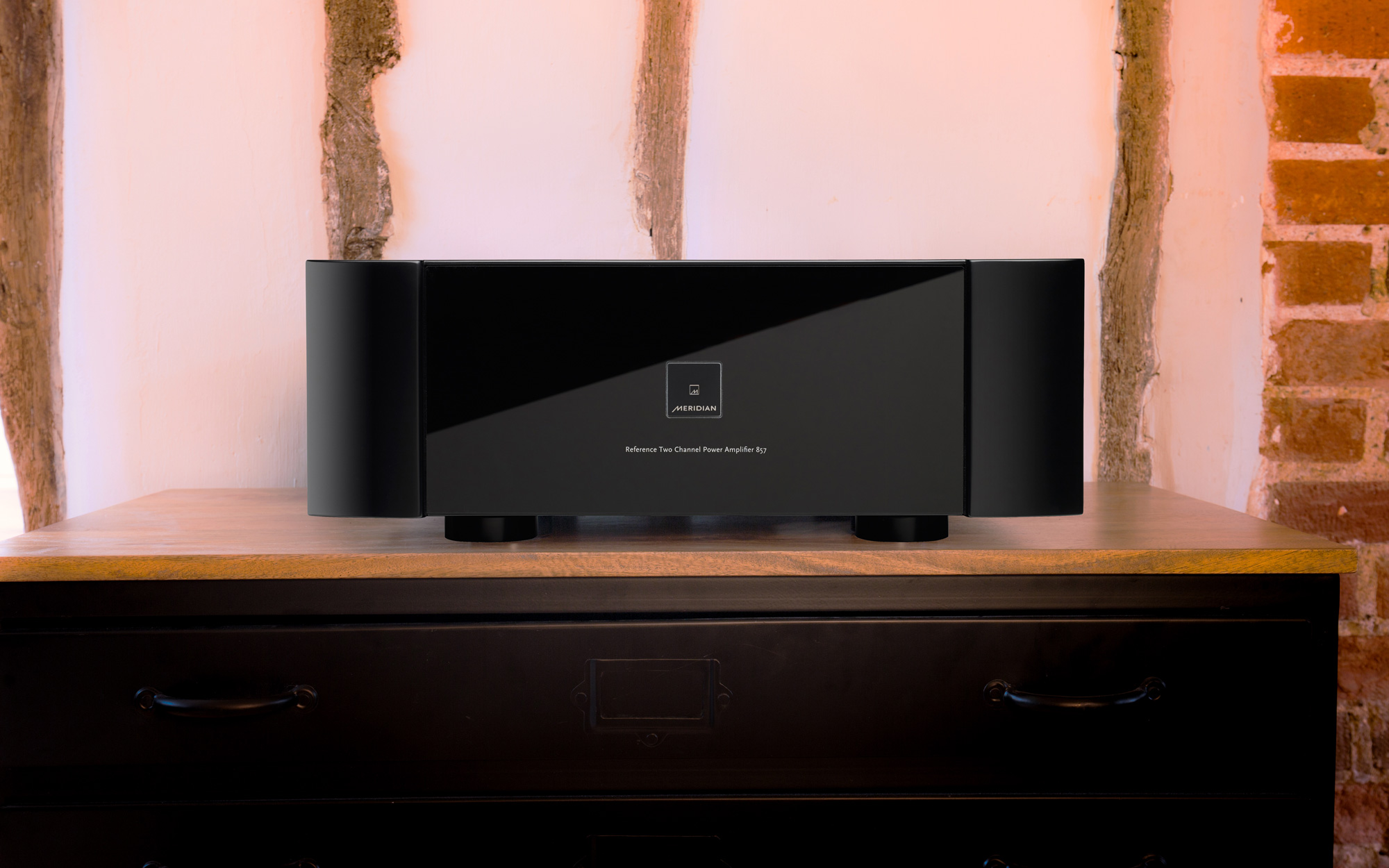
Non-ferrous chassis and panels – aluminium construction for magnetic linearity. Transformer including five secondary windings for maximum isolation between low-power and high-power circuitry. Ground plane design with multilayer circuit boards optimised for signal handling.
The open-loop characteristics of an amplifier are crucial to its sound quality. The power amplifier design is intrinsically linear and uses error correction in the output stage to provide low open-loop output impedance. This allows the power amplifier to achieve impeccable measured performance and a high damping factor while only applying modest amounts of negative feedback.
Both channels feature two pairs of binding-posts on their outputs to facilitate bi-wiring of loudspeakers with two sets of connection terminals.
The Meridian 800 Series represents the pinnacle of technological audio innovation and, most importantly, designed and engineered to provide you with the most rewarding personal listening experience possible.
Available in over 270 different colour finishes and backed by a five-year warranty, the 857 Power Amplifier allows you to achieve the optimum performance from any passive speaker system resulting in sound quality which will satisfy the most discerning of listeners.
Here you will find a quick overview of the product highlights and features.
Here you will find a summary of the complete range of Meridian products in one document.
AUDIO INPUTS
Two XLR balanced inputs
Two RCA unbalanced inputs
AUDIO OUTPUTS
250W RMS into 8 Ohms per channel both channels driven
500W RMS into 4 Ohms per channel both channels driven
Bridgeable to >1KW RMS into 8 Ohms • Bridgeable to >1.5KW RMS into 4 Ohms
4 WBT terminals per side allow bi-wiring
CONTROL SIGNALS
Trigger input [3.5mm 5-30 VDC]
COOLING
High level of passive cooling for silent in-room running
Six variable speed fans maintain amp functionality if hostile thermal conditions encountered in rack
DISPLAY
Backlit touch sensitive logo changes colour to indicate amplifier’s status
‘Standby’ [BLUE], ‘Normal Operation’ [GREEN]’, ‘Fans Active’ [AMBER], ‘Overload’ [RED]
DIMENSIONS
HEIGHT:
175mm [6.9in] without feet
195mm [7.7in] with feet
WIDTH:
480mm [18.9in]
DEPTH:
Standalone 445mm [17.6in]
Rack-mount 425mm [16.8in]
WEIGHT:
Standalone 32kg [70.5lbs]
Rack-mount 35kg [77.1lbs]
CONSTRUCTION
Black finish in aluminium and glass
Dedicated Rack-mount variant (4U high)
Custom Meridian Select colours also available
POWER
Advanced linear power supply: 100V ac 50/60 Hz | 110-120V ac 50/60Hz | 220-240V ac 50/60Hz
